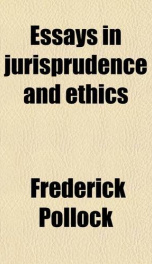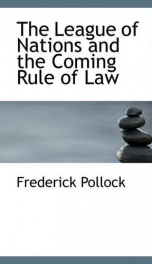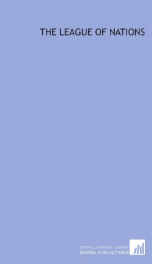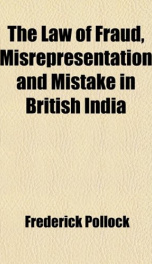essays in jurisprudence and ethics

Purchase of this book includes free trial access to www.million-books.com where you can read more than a million books for free. This is an OCR edition with typos. Excerpt from book: III. SOME DEFECTS OF OUR COMMERCIAL LAW. I. INVOLUNTARY LEGISLATION. Who makes the laws of England ? The question seems an elementary one, and most people would be ready to answer off-hand,the Queen, Lords, and Commons. Those who at any time in the course of their studies have entered into the labours of Ben- tham and Austin may consider the matter more deeply, and answer that Parliament indeed makes law, but the judges make itand sometimes unmake italso. But we are not yet at the root of things. The judges are causa proxima of the law settled by their decisions, but not causa efficiens. They cannot lay down anything of their own motion. A judge may write a legal book; but, however much better it may be than another man's book, it is equally powerless to make a binding rule for future decisions. The Courts can expound the law with authority only upon the occasions given to them when the judicial machinery is properly set in motion. So then we may say that as cloth is made by the weaver, though the machinery of the loom is beyond his comprehension,the part of our law which we call " judge-made" is really made by the people who start and keep going the processes of litigation. These people, it is needless to say, are the suitors. It is also needless to say that the declaration and amendment of the law, so far as it is effected by judicial decisions, is effected at the suitors' expense. The weaver is paid for making cloth, but the suitor pays for making law. So far as this expense enures to the benefit of the public by making the law more certain, it might seem that the suitors are unjustly charged with it. A man may well think it hard to be first led into difficulties by the imperfection of the law, and then made to pay for mending it. For these and other reasons certai...
Info about the book
Author:
Series:
Unknown
ISBN:
1142419460
Rating:
4/5 (9)Your rating:
0/5
Languge:
English
Users who have this book
Users who want this book
What readers are saying
What do you think? Write your own comment on this book!
write a commentGenre
if you like essays in jurisprudence and ethics try:
Other books by this author
Do you want to exchange books? It’s EASY!
Get registered and find other users who want to give their favourite books to good hands!





